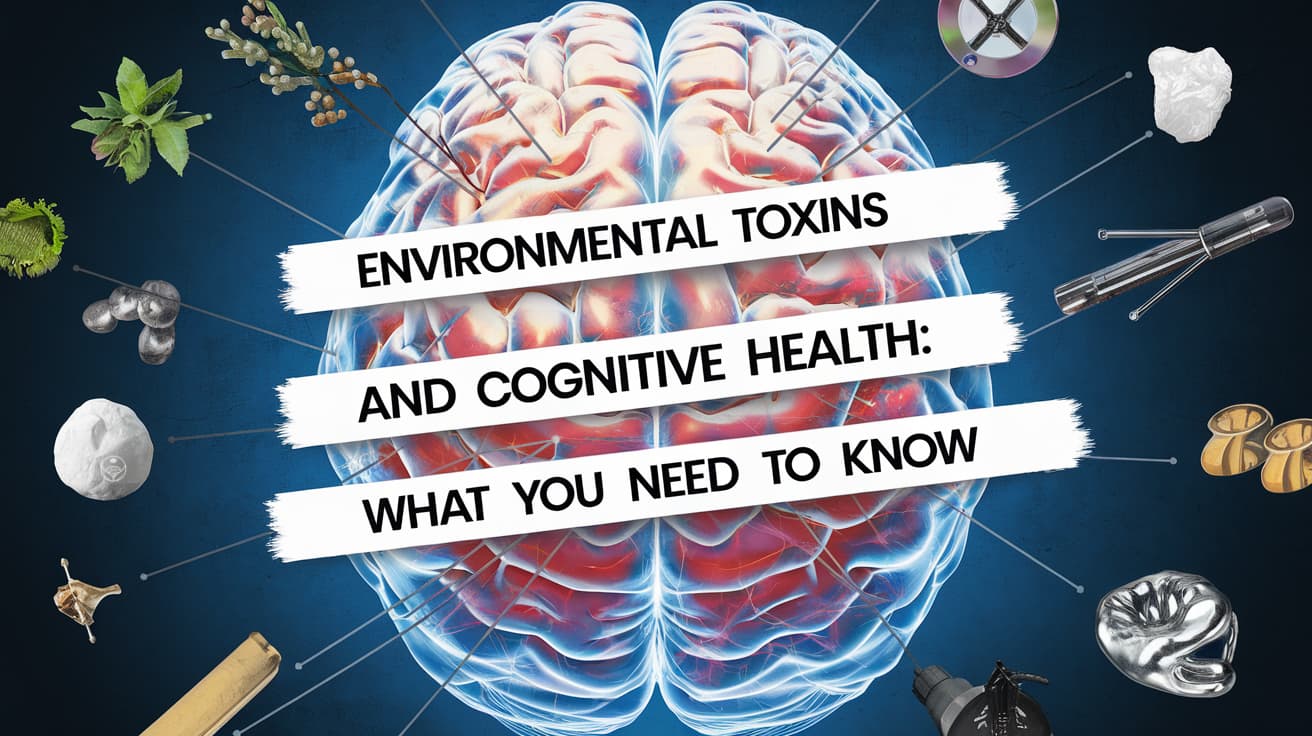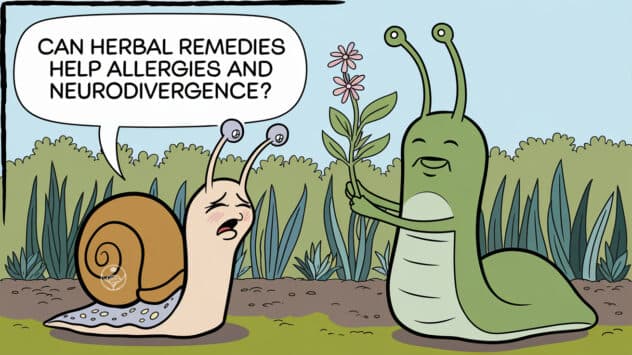Environmental Toxins and Cognitive Health: What You Need to Know
Let’s face it, modern life is a juggling act. We’ve got apps to monitor our every move, delivery services so fast we’re practically living in the future, and, unfortunately, environmental toxins tagging along for the ride. These sneaky saboteurs don’t just invade our air and water. Environmental Toxins also meddle with our Cognitive Health, leaving us feeling foggy, fatigued, and frustrated.
For neurodivergent individuals, like those with ADHD, autism, or other unique brain wiring, and anyone who’s serious about their cognitive health, these environmental toxins are the uninvited guests wreaking havoc at the party. They mess with neurotransmitters, fuel inflammation, and leave your brain feeling like it’s running on an outdated operating system.
But don’t worry, this isn’t a doom-and-gloom lecture where we tell you to bin everything you own. Instead, it’s your ultimate guide to tackling environmental toxins while keeping your life intact (and maybe even a bit fun). With a few smart tweaks, you can give your brain the detox it deserves and keep your cognitive health thriving. Let’s do this.
What Are Environmental Toxins and Why Should You Care?
Environmental toxins are those invisible party crashers that invade our bodies through the air we breathe, the water we drink, and even the furniture we sit on. They include heavy metals like lead and mercury, pesticides, and endocrine disruptors hiding in plastics and household products.
For cognitive health, these toxins are the ultimate bad influencers. They meddle with neurotransmitters, fuel inflammation, and, in some cases, even alter how our brain cells communicate. Think of them as your brain’s equivalent of dodgy Wi-Fi, constantly cutting out when you need it most.
How Environmental Toxins Affect Cognitive Health
The brain is like a supercomputer, but it’s not immune to wear and tear. Here’s how toxins mess with the system:
Unlock peak brain performance with science-backed biohacks. Join free now & get your guide for just £4.99 (45% off)!

- Neurotransmitter Disruption: Chemicals like lead interfere with the signalling in your brain, making focus and emotional regulation harder.
- Oxidative Stress: This fancy term describes how toxins damage your cells, creating chaos that slows your brain down.
- Hormonal Interference: Endocrine disruptors (found in everything from plastic bottles to beauty products) can mess with the hormones that keep your brain running smoothly.
For neurodivergent individuals, these effects can be amplified, turning everyday challenges into uphill battles.
Natural Strategies to Combat Environmental Toxins and Boost Cognitive Health
You don’t need to overhaul your entire life to tackle toxins. Small, manageable steps can make a big difference.
1. Detox with Food
Food is more than fuel, it’s your brain’s ally in the fight against toxins.
- Cruciferous Vegetables: Broccoli, cauliflower, and kale are like your brain’s personal bodyguards, packed with compounds that boost detox enzymes. Available at most supermarkets, they’re affordable and versatile (broccoli soup, anyone?).
- Berries: These antioxidant-rich powerhouses combat oxidative stress. Frozen berries are a budget-friendly option that work just as well as fresh.
- Garlic and Onions: These sulphur-rich wonders support your liver’s detox pathways. They’re cheap, easy to find, and a kitchen staple. Bonus: they also ward off vampires.
2. Stay Hydrated
Water is nature’s detox tool. It flushes toxins out and keeps your brain firing on all cylinders.
- Go Filtered: A water filter is a simple way to reduce contaminants like heavy metals. Filters range from affordable pitchers to high-tech under-sink systems.
- Lemon Boost: Adding lemon to your water is an easy, cost-effective way to support digestion and alkalise your body.
- Choose Glass Over Plastic: Glass water bottles are a healthier alternative to plastic, avoiding the risk of chemical leaching while being eco-friendly and reusable.
3. Get Moving
Exercise doesn’t just keep you fit, it’s a detox tool. Sweating helps expel toxins, and increased blood flow gives your brain a fresh supply of oxygen and nutrients.
- Aerobic Workouts: Running, cycling, or even a brisk walk can work wonders for circulation. Best of all, it’s free and great for other ADHD symptoms!
- Infrared Saunas: These can help you sweat out toxins while relaxing. If a sauna isn’t in your budget, consider hot yoga (but maybe skip the downward dog right after dinner).
4. Try Natural Supplements
Supplements can give your detox routine an extra edge.
- Milk Thistle: Known for its liver-supporting properties, it’s widely available and relatively inexpensive.
- Chlorella: This algae binds to heavy metals and helps eliminate them. It’s a bit pricier but worth it for its detoxifying effects.
- Probiotics: A healthy gut is vital for overall detox and brain health. Probiotics come in many forms, from yogurt to capsules.
Always consult a healthcare provider before starting new supplements.
Creating a Low-Toxin Environment
Minimising exposure to toxins is just as important as flushing them out.
- Choose Organic: Prioritise organic options for produce like apples and strawberries, which tend to have higher pesticide residues.
- Switch to Natural Cleaners: Vinegar, baking soda, and essential oils can replace harsh chemical cleaners.
- Filter Your Air: Invest in an air purifier, especially if you live in an urban area.
Why This Matters for Neurodivergent Individuals
For neurodivergent individuals, reducing exposure to environmental toxins can lead to noticeable improvements in focus, mood, and overall cognitive health. It’s not about “fixing” anything, it’s more about giving your brain the best possible environment to thrive. Think of it as spring cleaning for your neurons.
Join Our Community!
Looking for more ways to support your cognitive health? Join the Herbal Biohacker community for tips, insights, and a supportive space to explore natural health strategies. Together, we’ll help you thrive!







